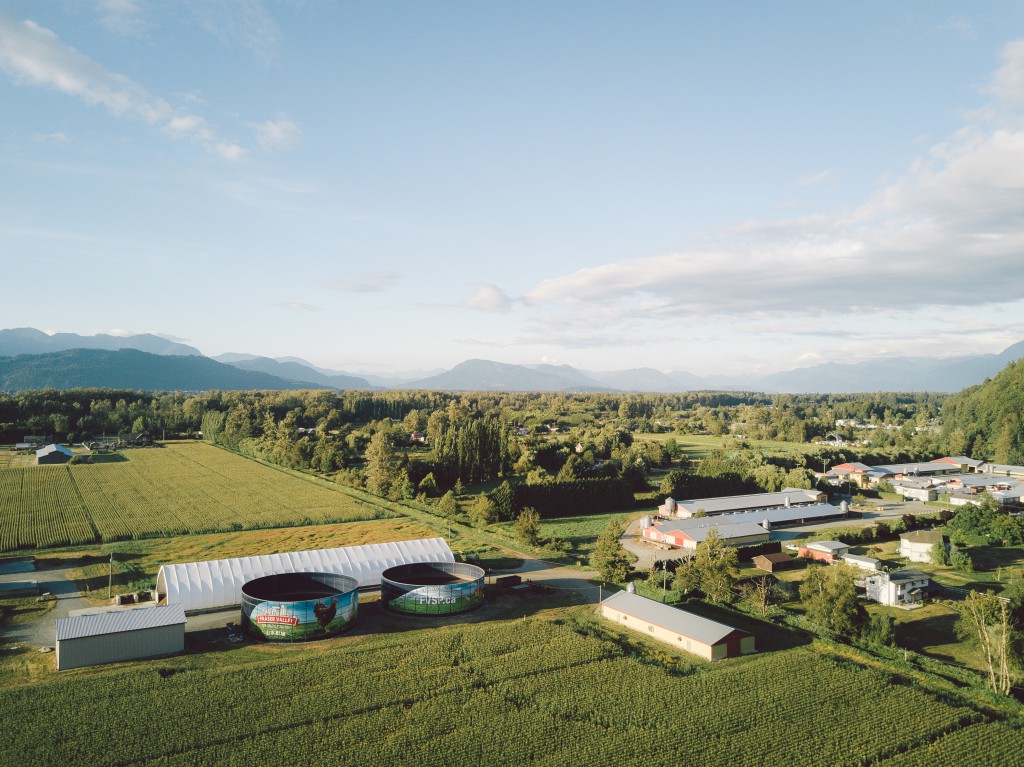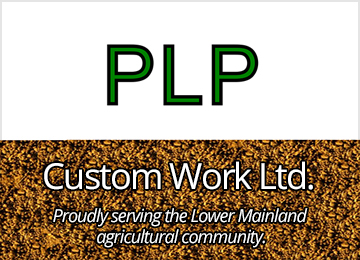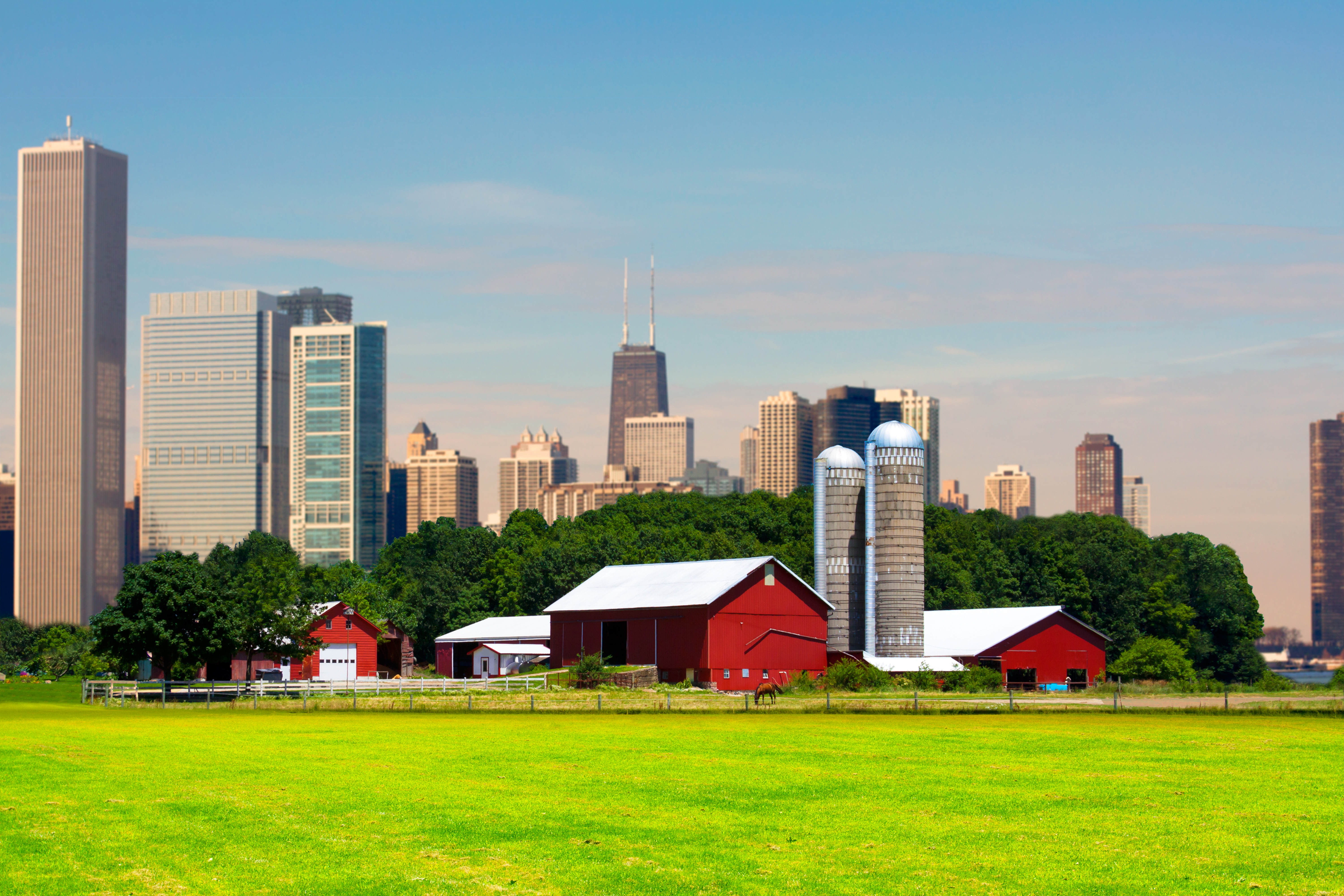How the Falks Rejuvenated Fraser Valley Specialty Poultry
By Michelle Superle
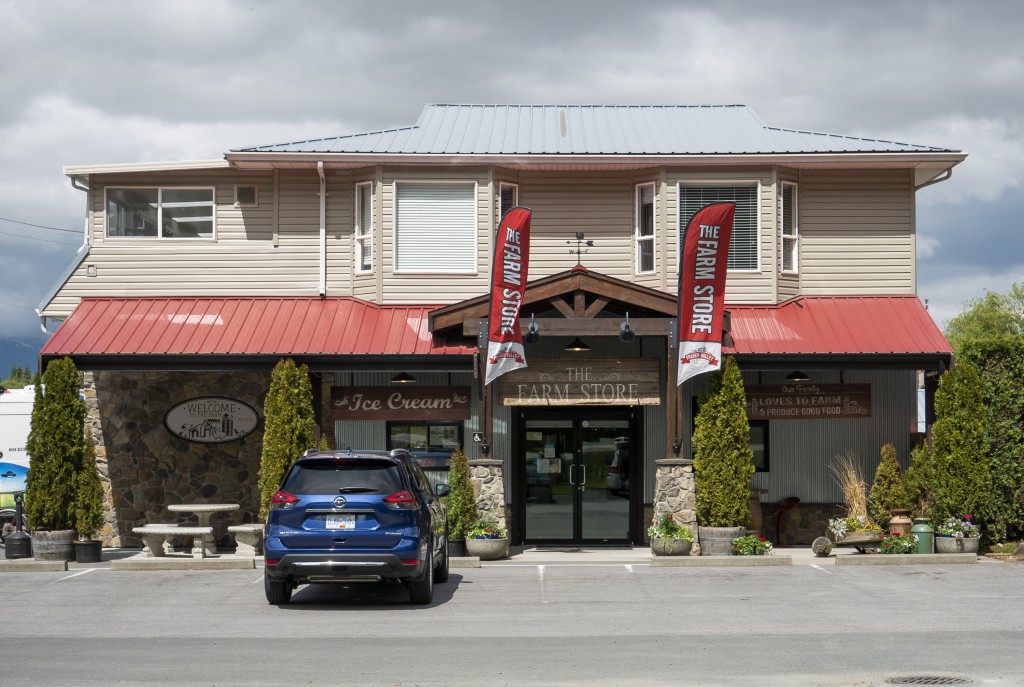
I’m Fraser Valley Specialty Poultry’s dream customer: each week I visit their Farm Store in Yarrow, British Columbia to purchase duck eggs, organic chicken, locally produced lamb, and organic goat milk. I can’t afford these products, but I buy them anyway—for my daughter.
Every time I pull up to the quaint, country-style farm store, a wave of hipster nostalgia rolls through me: admiration for the artisanal quality of the products, appreciation of the authentic setting on the farm, and respect for the Falk family’s old-school work ethic.
I’m the kind of customer the Falks banked on when they expanded the retail side of their operation. But until I got the chance to chat with them, I had no idea that the Chilliwack storefront is only a tiny fraction of their business—nor did I realize how lucky I am to be able to shop here. Little more than a decade ago, they almost lost everything. Learning how they reinvented themselves as a diverse, robust operation—Fraser Valley Specialty Poultry—increases my admiration ten-fold.
“I toured three separate groups through our facility in 2004. I told them it was theirs—all they had to do was take over the debt. There were no takers,” recalls Ken Falk of the bad old days. “But now we have a thriving operation with five hundred products.”
The 2004 avian flu outbreak was devastating for the family’s operation, which locals fondly called “The Duck and Goose Farm” back then. The duck farm was successful from its beginnings in the 1970s, and the Falks kept it thriving after purchasing it in 1998. But as independent farmers outside the supply management system, they were sitting ducks when disaster struck. The financial losses from the government-mandated avian flu culling were excruciating. The stress on Ken and his family was even worse.
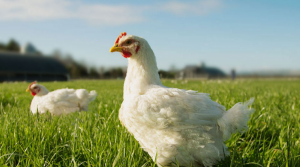
The Falks are no strangers to the challenges of farming. Ken is a third generation Canadian farmer: his ancestors are Dutch Mennonites who emigrated from Russia to Abbotsford. Two of Ken’s sons farm with him today, and he hopes that as many of his grandchildren as possible will get involved in the family farming operations. The Falks have “tried just about everything” in agriculture—“the list of things we haven’t farmed is much shorter.” Just a few decades ago, they owned the largest raspberry farm in North America, with hundreds of acres of canes in production, as well as a fleet of buses to transport the laborers who picked every berry by hand.
But taking on the duck farm meant serious risk. To get their ducks in a row for the purchase, the Falks had to sell assets and take on extensive debt. They kept everything afloat for the first few years, growing the operation while running several other family businesses simultaneously.
Until the avian flu. As a small, independent business with vertical integration, they were hit much harder than poultry farmers in the supply management chain. The biggest blow was losing every bird at every stage of the breeding cycle.
“My wife thought it would be best to walk away. She was worried about my health. But I just couldn’t do it. Farming is in my blood. And I don’t quit,” says Ken.
Instead of quitting, Ken channeled the Falk family work ethic. “When things get tough we work like bulls—head down, horns out!” He was determined to save the duck farm.
After a heated family meeting, a decision was made: although some family members were no longer comfortable with the risk and wanted to cut their losses, Ken and his eldest son Joe threw everything they had at rejuvenating the business. Their goal was simple: survival.
Progress was painfully slow. Their first challenge was distribution. After the culling, customers began to source ducks from other suppliers, mostly in the United States. Between the much lower American prices and buyers’ fears that there would be another disaster to jeopardize the supply, the Falks could not win back their customer base.
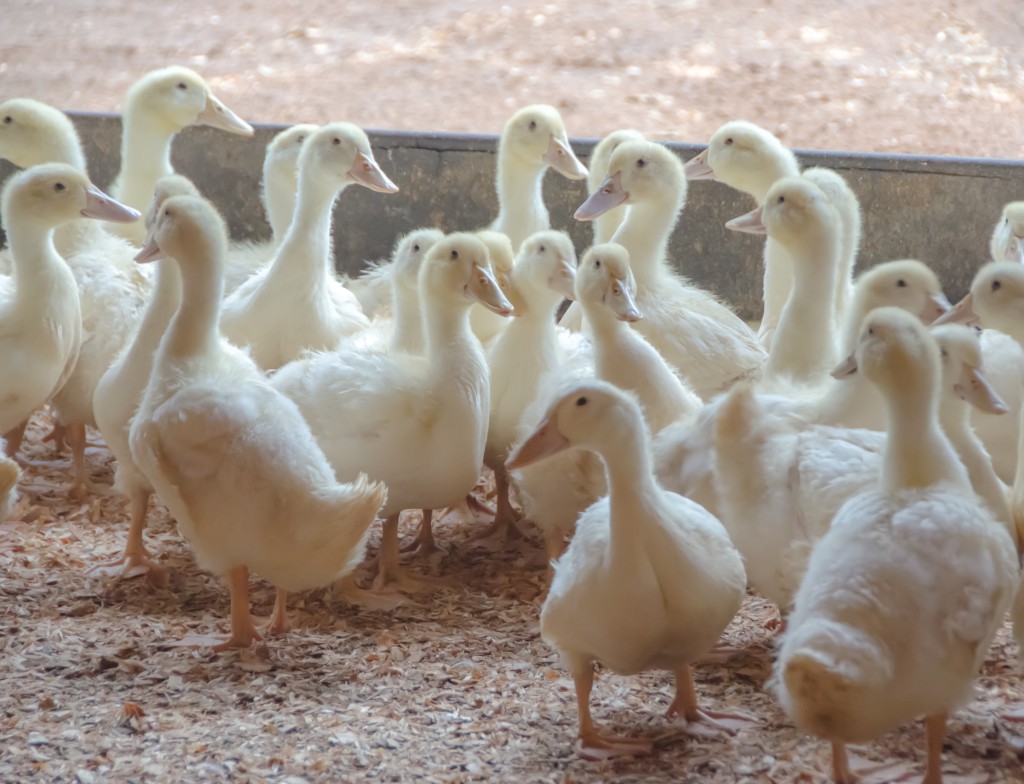
To overcome this, they decided to take over their own distribution. Since their former market had been Asian restaurants, they hired an “Asian Sales Manager” with the expertise to advise them on how to proceed with Chinese products, such as Loong Kong chickens. Acting on that advice ultimately led to substantial growth from 2007 onwards.
But growing wasn’t easy. To diversify their products and increase production the way they envisioned, they had to fight for their share of the market. This involved a two-year battle with the chicken board, which culminated in an appeal to the British Columbia Farm Industry Review Board.
“We were asking for very little in the greater scheme of the supply management world,” explains Ken. “But we knew it would be a make it or break it difference for us.”
While the case was not resolved in their favour, the chicken board was instructed to identify unused allocation and offer it to the Falks.
Surprisingly, it was three times more than they had initially requested, which made for a good news/bad news scenario. Winning so much more than they had bargained for meant they now had the immense challenge of scrambling to increase their production dramatically—and then sell the extra product.
“To buy the quota and fund the expansion with adequate cash flow, we had to sell off family property. It was a huge shift in our business model, taking us out of our previous single product line of duck by doubling production to 20,000 Loong Kong chickens per week.”
Head down, horns out, they succeeded. By 2010 they had bought their quota and were producing the full line of chicken.
But from 2004 through 2012 they felt like they were living in a house of cards. “It was so tight during those years that sometimes we had to choose: fuel or wages for our staff. We always chose wages.”
Over time, with constant effort and perseverance, their situation stabilized. Once they rebuilt their business with a more secure foundation, they could aim for the goal all farmers dream of: security.
The extra quota and expanded product line got them closer, but they still weren’t there. Like so many small family farming operations today, the Falks realized that they would have to diversify to gain true stability. They needed to brand themselves in a way that would appeal to a wider array of customers. One step was to liaise with a distributor in Seattle, which sells FVSP products into California, Utah, and Hawaii.
“Canada has a good reputation for food,” says Joe. As the fourth generation, Joe now runs most of the company’s day-to-day operations. “There’s a big demand for high quality you can trust. Americans love our products.”
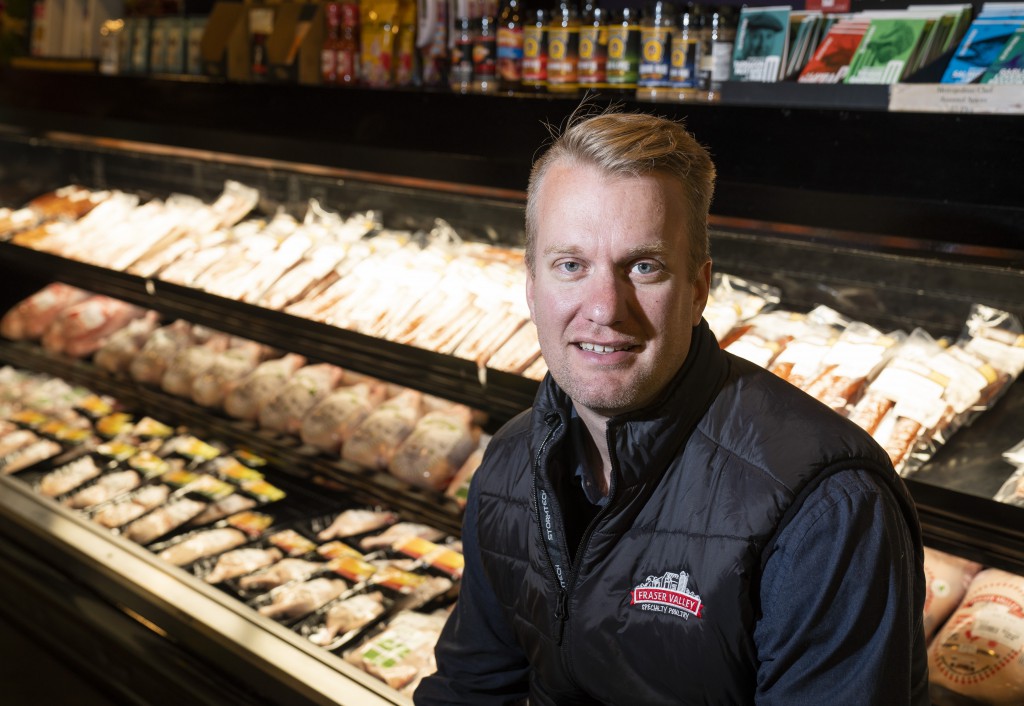
The Falks have always been proud of their poultry products’ high quality and freshness. When they noticed a proliferation of high-end meat shops appearing across the Lower Mainland they realized the gourmet specialty market would be a perfect fit—for both foodie and restaurants customers alike. In 2014, they expanded into organic chicken.
The customers they envisioned are just like me—the very ones the Farm Store lures in—but their onsite retail outlet is not the only place to source these specialty products. “Getting established in the gourmet market has been tough,” says Joe. “Nobody in that world knew us. We had to make our name there. There was so much to do—even change our packaging. Now we can package for retail, wholesale, and restaurant trade.”
Today, after investing so much time, money, and strategy in to their branding and packaging, their wares are available in many specialty stores and fine dining restaurants. Their Yarrow Meadows organic products now grace the shelves of Choices and other high-end shops around the Lower Mainland. Two Rivers Meats now distributes Fraser Valley Specialty Poultry to eateries as swanky as Hawksworth.
“There’s nobody like us in North America,” says Joe proudly. “We have such broad selection of products—five hundred! Just the logistics of dealing with everything from a one pound bird like a squab to a twenty-five pound bird like a turkey is mind-boggling. For us, the staff training and expertise we require is so high. Our staff is amazing. Some have been with us for decades, since the duck farm days.”
Like everyone else who tries their products, I’m sold—more so than ever after hearing their story.
“We’re blessed beyond measure to be where we are today. But we’re not done yet,” Ken promises. “We have plans for further expansion. There’s a growing demand for our products. We don’t want to leave anyone hungry!”
“So what’s your secret?” I can’t resist asking.
“Our vision statement is absolutely authentic—our family does love to farm and produce good food. But I think our secret is our work ethic. Like I said, I don’t give up.”
